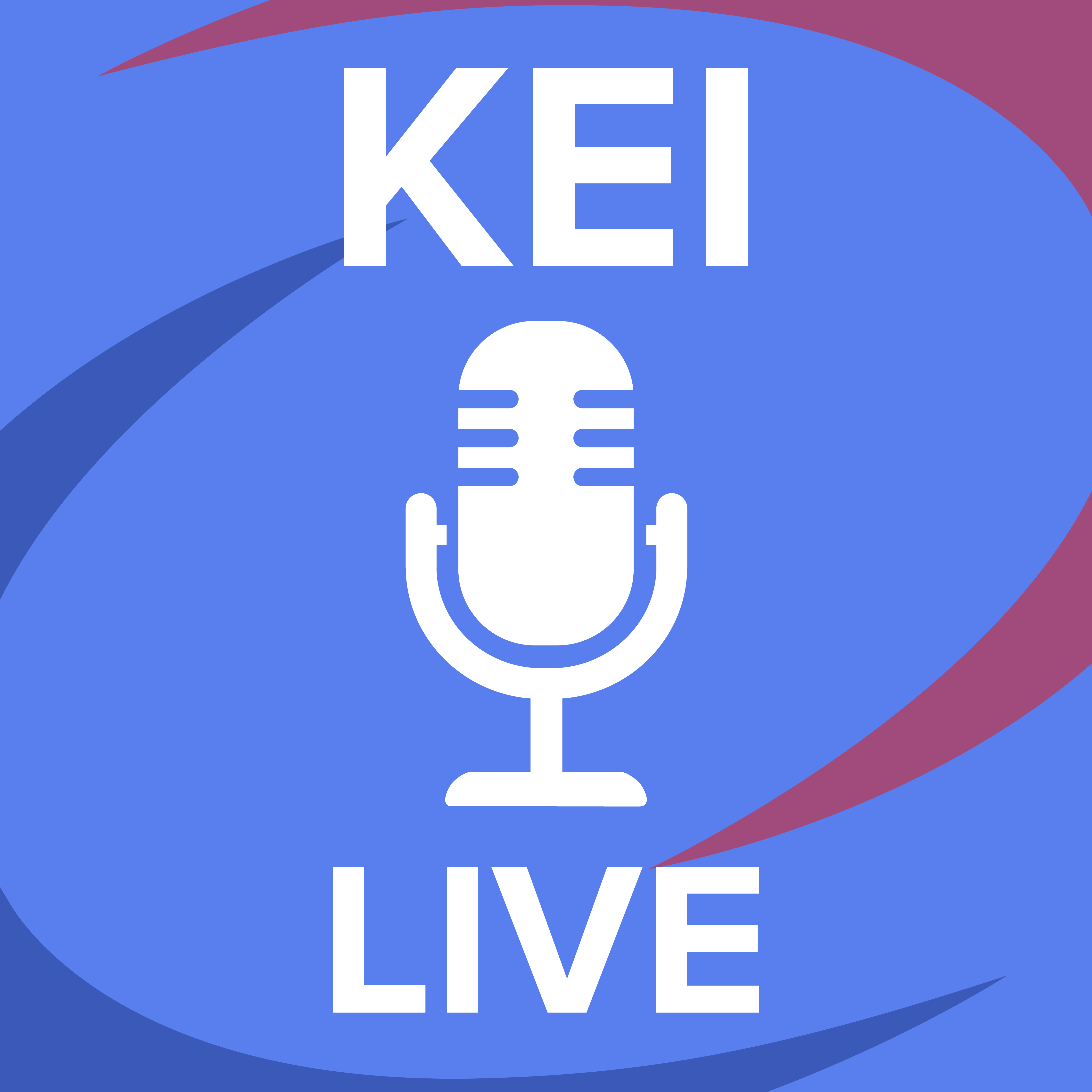
271.3K
Downloads
302
Episodes
KEI Live is the official podcast feed for the Korea Economic Institute of America’s live panels and events. Hear panels and discussions covering Korean policy, economics, culture, and more, directly from our public events. [KEI is registered under the FARA as an agent of the KIEP, a public corporation established by the government of the Republic of Korea. Additional information is available at the Department of Justice, Washington, D.C.]
KEI Live is the official podcast feed for the Korea Economic Institute of America’s live panels and events. Hear panels and discussions covering Korean policy, economics, culture, and more, directly from our public events. [KEI is registered under the FARA as an agent of the KIEP, a public corporation established by the government of the Republic of Korea. Additional information is available at the Department of Justice, Washington, D.C.]
Episodes
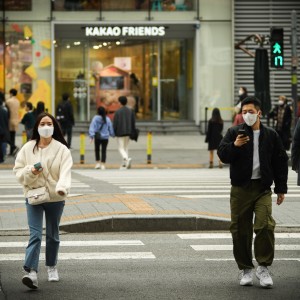
Friday Mar 20, 2020
Friday Mar 20, 2020
On January 27, the South Korean government in concert with private biotech companies went into overdrive to produce effective testing kits for the coronavirus. There were at the time 4 cases in the country, but the gravity of the crisis was quickly understood. 7 weeks later, South Korea had tested well over 290,000 people and identified over 8,000 cases. As a result, there has been a reduction in new cases in March.
South Korea’s actions contrast from those of the United States government - only 60,000 tests have been run as of March 18 - there are 330 million people in the country. As a result of these insufficient tests, there is no way of knowing how many cases are in the United States. And an effective containment policy is difficult to craft. One projection estimated that 96 million people in the United States could be infected in the coming months.
Why was there such a huge difference between the governments’ responses in South Korea and the United States? And what can the world do together to address this crisis?
KEI President Ambassador Kathleen Stephens and Vice President Mark Tokola highlight that it was not just technical capacity but political leadership and civic engagement that played a huge role in shaping South Korea’s response.
You can also find KEI Senior Director Troy Stangarone’s recent piece in The Diplomat magazine on South Korea’s preparations for the economic challenges that are expected to stem from the global pandemic, here: https://thediplomat.com/2020/03/south-korea-braces-for-global-recession/
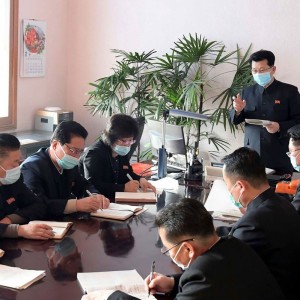
Friday Mar 13, 2020
How an Isolated Country Fights a Pandemic: Troy Stangarone
Friday Mar 13, 2020
Friday Mar 13, 2020
On Friday, March 13, Commander of United States Forces Korea General Robert Abrams noted that North Korea’s armed forces have been in lockdown for about 30 days and only recently have started routine training again. Citing one example, General Abrams highlighted that the North Korean airforce did not fly an airplane for 24 days. He believes this is a sign that the country is trying to deal with the coronavirus outbreak.
Meanwhile, Kim Jong-un was featured in North Korea’s state media supervising live-fire artillery exercise. The country has also launched short-ranged projectiles.
What is going on? Why would North Korea choose to look more aggressive at a time when it could most benefit from international cooperation? KEI Senior Director and Fellow Troy Stangarone joins us to answer this question.
You can find a link to Troy’s article for the Diplomat magazine here: https://thediplomat.com/2020/03/coronavirus-the-economic-costs-for-north-korea/
Please also listen to our previous episodes on how the Korean Peninsula is addressing the coronavirus outbreak.
With KEI Fellow Kyle Ferrier on South Korea's response: http://keia.org/podcast/tackling-coronavirus-not-costless-kyle-ferrier
And with Dr. John Grundy on the preparedness of the North Korean healthcare system: http://keia.org/podcast/can-north-korea-take-coronavrius-not-alone-john-grundy
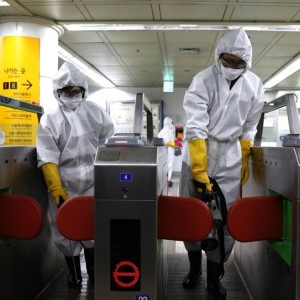
Friday Mar 06, 2020
Tackling the Coronavirus is Not Costless: Kyle Ferrier
Friday Mar 06, 2020
Friday Mar 06, 2020
As of March 6, there are over 6,500 reported coronavirus cases in South Korea.
It is currently the country with the second-largest number of coronavirus patients.
The large number, however, may be less a reflection of South Korea’s exposure to the disease and more of the country’s proactive effort to screen and test people for the viral infection. The country has tested over 140,000 people - setting up stations throughout the country and employing all public resources, including its universal health care system and the military, to establish the infrastructure needed to treat patients.
The thoroughness of the country’s approach to the coronavirus is evident in its fatality rate standing at 0.57% - this is far lower than the 3.4% figure cited by the World Health Organization and it reflects either South Korea’s ability to detect patients more quickly and more thoroughly or its ability to treat patients more effectively.
Nonetheless, the disease has been a major strain on South Korea socially, economically, and politically. KEI Fellow and Director of Academic Affairs Kyle Ferrier walks us through how the coronavrius is affecting the country.
You can find Kyle Ferrier’s recent pieces for the Diplomat Magazine in the following links:
https://thediplomat.com/2020/02/coronavirus-concerns-intensify-in-south-korea/
https://thediplomat.com/2020/02/coronavirus-now-poised-for-outsized-impact-in-south-korea/
If you have not checked out our interview from last week with Dr. John Grundy on how North Korea might be addressing the coronavirus outbreak, we highly recommend you take a listen: http://keia.org/podcast/can-north-korea-take-coronavrius-not-alone-john-grundy
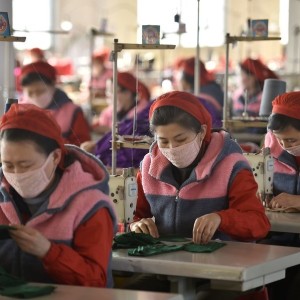
Thursday Feb 27, 2020
Can North Korea take on the coronavrius? Not alone: John Grundy
Thursday Feb 27, 2020
Thursday Feb 27, 2020
The U.S. Center for Disease Control announced this week that Americans should prepare for the coronavirus spreading in the United States. And in other parts of the world, the disease is already spreading quite rapidly.
At this time, many security analysts are waking up to the reality that there are countries less prepared to contain and treat this new infectious disease - these countries may become a weak link in the global chain to stem the spread of the disease and intensify the consequences of a pandemic.
In Northeast Asia, that country is North Korea - for its part Pyongyang is taking this disease seriously. Its response has been stronger than it had been against the 2014 ebola outbreak, the H1N1 outbreak in 2009, and the SARS outbreak in 2002-2003. It has been described by some analysts as “unusually high-profile."
So what might be aiding or detracting North Korea’s capacity to address this major threat? Our guest today, Dr. John Grundy, is a medical professional who has traveled to North Korea over 8 times and has visited remote locations to examine the country’s health systems. He joins us today to provide his take on North Korea’s public health capacity.
You can find Dr. Grundy’s 2015 paper covering the evolution of North Korea’s public healthcare system from the Cold War era to today, here:
Please also check out a rebroadcast of KEI's 2017 interview with Dr. Grundy on the history of North Korea's healthcare system:
![[Rebroadcast] North Korea's Healthcare System: John Grundy](https://pbcdn1.podbean.com/imglogo/ep-logo/pbblog284530/kju-hospital-visit2-935x500_300x300.png)
Friday Feb 21, 2020
[Rebroadcast] North Korea's Healthcare System: John Grundy
Friday Feb 21, 2020
Friday Feb 21, 2020
Even before the coronavirus became the top headline news in the United States, North Korea responded to the outbreak of the infectious disease in China by sealing its borders. North Korea has not yet reported any cases of the coronavirus - but five North Koreans reportedly died on the Sino-North Korean border from symptoms similar to the coronavirus - there are also reports that a North Korean in Pyongyang may have contracted the virus as well.
At this moment, how prepared is North Korea’s healthcare system to combat this new infectious disease? We bring you an episode of the Korean Kontext from 2017 where we sat down with Dr. John Grundy who has field experience examining North Korea’s medical facilities - and had written a paper for KEI on the history of the country’s healthcare system.
You can find Dr. Grundy’s 2017 paper for KEI, "History, International Relations, and Public Health: The Case of the Democratic People's Republic of Korea, 1953-2015" here:
Please also find KEI Senior Director Troy Stangarone’s Peninsula Blog article on why the U.S. government should help North Korea combat the coronavirus here:
http://blog.keia.org/2020/02/united-states-can-help-north-korea-coronavirus/
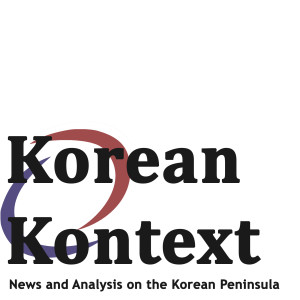
Friday Feb 14, 2020
10 Issues for the Korean Peninsula in 2020: KEI Staff
Friday Feb 14, 2020
Friday Feb 14, 2020
2019 was a year of confusion in the United States and the Asia-Pacific.
After the failed Hanoi summit, the world waited for North Korea to come back to the table, which they did not do.
The United States and South Korea agreed to a temporary cost-sharing agreement for U.S. troops stationed in Korea - and Korea watchers waited for a more long-term agreement to be settled before the end of the year. This did not happen.
Meanwhile, people in the United States anxiously waited for Congress to make a decision on whether they would impeach the president or not.
Then 2020 started with a bang - the United States nearly went to war with Iran; the impeachment trial of President Trump wrapped up rapidly; the Wuhan coronavirus became the top global threat. Amidst all these rapidly-changing developments, what is KEI keeping its eyes on?
KEI Senior Director Troy Stangarone, Director Kyle Ferrier, and Director Sang Kim are here to tell us about the top issues they are watching in 2020.
Please also find their joint blog piece here: http://blog.keia.org/2020/01/10-issues-watch-korean-peninsula-2020/
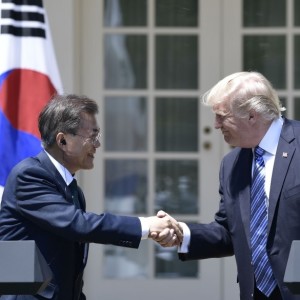
Friday Feb 07, 2020
Monetizing The Linchpin: Kyle Ferrier
Friday Feb 07, 2020
Friday Feb 07, 2020
Do countries need allies? Do alliances necessarily require the member countries to set aside their national interests? These are the questions that the Trump administration has posed with its America-first approach to foreign policy.
One of the key claims from the president is that countries like South Korea are not paying their fair share of the defense costs in the security alliance. But who has actually done the math on what the South Koreans are contributing to the alliance?
KEI Fellow and Director of Academic Affairs Kyle Ferrier has done the math on the value of the alliance - and he believes that the United States is risking a whole lot more than $5 billion by undermining people’s confidence in the U.S.-ROK security alliance.
You can find his paper "Monetizing the Linchpin" here:
http://www.keia.org/sites/default/files/publications/kei_monitoring_the_linchpin_191205.pdf
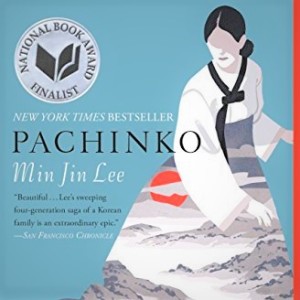
Friday Jan 31, 2020
Building a Better Future with Truth: Min Jin Lee
Friday Jan 31, 2020
Friday Jan 31, 2020
Why is it important to tell true stories about the past?
It is a question that people are grappling with across the world. In the United States, uncomfortable issues like the legacy of slavery have come to the forefront of public debate. Elsewhere, people are examining the accuracy of traditional narratives around colonialism, war, and the origins of the socio-economic order as we know it.
It is a difficult exercise for a community, one that might first appear to be opening old wounds rather than healing them. This is especially true at a time when political and economic anxieties - alongside unprecedented changes in technology and human migration - appear to be already unspooling the fabric of society.
But author Min Jin Lee insists that we must persist in telling true stories about the past because they inform us about who we are and our relationship with one another. They are the very foundations of building a more peaceful and tolerant world.
Korean Kontext caught up with Min Jin Lee at the 2020 Korean American Day celebration in Washington D.C. where she was recognized alongside fellow author Alexander Chee as this year’s honorees for their contributions to American literature and for elevating the voices of Korean Americans in the United States.
If you have not had the chance to check out our interview with Min Jin Lee’s fellow Korean American Day honoree Alexander Chee, you can find that episode here:
https://www.podbean.com/media/share/pb-ipg7r-d0e6d1
Also please check out Min Jin Lee's short story Stonehenge here:

Friday Jan 24, 2020
Representation and Community: Alexander Chee
Friday Jan 24, 2020
Friday Jan 24, 2020
What is the value of representation in a society? Why consider a female president? or Asian actors in movies? or spotlight Black community leaders? It’s an important question for the United States, which is contending with structural inequities - racial, sexual, and economic - and for the rest of the world as well.
Author Alexander Chee has an answer. Diverse voices deserve a place in our society to tell stories only they can tell - and their stories are important to make sense of the world around us that is - not being made more complex - but rather has always been complex. And if you think your local community is simple and homogenous, it is not, it never was.
This is the first of two podcasts where we catch up with KEI’s Korean American Day honorees. Today, we speak with Alexander Chee. Currently an associate professor in the department of English and Creative Writing at Dartmouth University, he is a journalist, essayist - and author of two novels titled Edinburgh and Queen of the Night. His most recent publication is a series of essays called “How to write an autobiography.” He was honored in this year’s Korean American Day for his accomplishments in modern American literature where he placed society’s rules and norms under a literary magnifying glass.

Friday Jan 17, 2020
Korea and the Persian Gulf: Troy Stangarone
Friday Jan 17, 2020
Friday Jan 17, 2020
2020 is starting off dramatically with the escalation of tensions in the Middle East - The world held its breath while the United States and Iran exchanged both blows and barbs.
In the weeks that followed, tensions fortunately deescalated. But in the aftermath, the European Union has accused Tehran of reneging elements of the nuclear deal. Although the Trump administration had already abandoned the nuclear deal in May 2018, Tehran’s abrogation could lead to the reimposition of further sanctions. And so, the situation remains deeply volatile.
So it’s a good time to review what risks South Korea faces if a conflict flairs up in the Middle East. Would Korean troops be deployed to the region? How long could the South Korean economy last without its vital oil supplies? Are there alternative suppliers? And what would this mean for negotiations with North Korea?
KEI Senior Director Troy Stangarone will answer all these questions in this episode.

Friday Dec 20, 2019
Sharing the Burden: Song Min-soon
Friday Dec 20, 2019
Friday Dec 20, 2019
This week, the United States and South Korea failed to reach an agreement on how to share the cost for U.S. troops deployed on the Korean Peninsula.
The two countries had failed to come to an agreement last December as well - ultimately settling on a one-year deal in February of this year where South Korea increased its contribution from around $800 million to nearly $1 billion.
In the current round of negotiations, the Trump administration has sought a 400% increase. A payment of $4.7 billion that would cover the entire cost of U.S. troop deployment and more.
The position of the U.S. government has elicited concerns both in South Korea and the United States. Long-time policy watchers have raised worries that this may weaken the alliance at a vital juncture in U.S. engagements in the region, or push South Korea to take radical steps to better protect itself against the North Korean threat, such as the acquisition of nuclear weapons.
Our guest today, former ROK Foreign Minister Song Min-soon, is one of the original architects of the burden-sharing agreement between the United States and the Republic of Korea. He is also a long-time policy practitioner who worked on U.S.-Korea relations. He joins us today to provide his view of relations between the two countries.
Here is the link to KEI's event on U.S. approach to defense burden-sharing: https://youtu.be/CH0jHNB5OwQ
And you can find KEI fellow Kyle Ferrier’s paper on the monetary value of Korea’s contributions to U.S. foreign policy here: http://www.keia.org/sites/default/files/publications/kei_monitoring_the_linchpin_191205.pdf
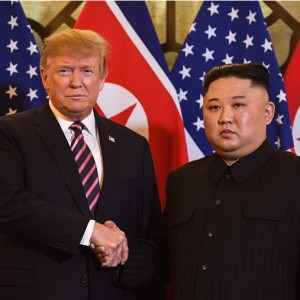
Friday Dec 13, 2019
Impeachment, Part 2: Consequences
Friday Dec 13, 2019
Friday Dec 13, 2019
This week, Congress introduced 2 articles of impeachment against President Trump. One for abuse of power and one for obstruction of Congress.
The ongoing confrontation between the White House and U.S. Congress will likely engross President Donald Trump’s political attention in the months ahead. Given his central role in executing highly delicate negotiations with North Korea and high-stakes face-off over trade with China, the question on many people’s minds is how the impeachment inquiry may affect the U.S. government’s execution of foreign policy. Our guest today, KEI Senior Director Troy Stangarone, addresses this topic head-on.
This is part two of the episodes dealing with impeachment - specifically addressing how the impeachment will affect U.S. negotiations with North Korea.
If you haven’t listened to part 1 on the precedents set by the impeachment inquiries against Presidents Nixon and Clinton, I highly recommend you going back and listening to the episode. You can find it here:
https://www.podbean.com/eu/pb-yymkb-ca17b9
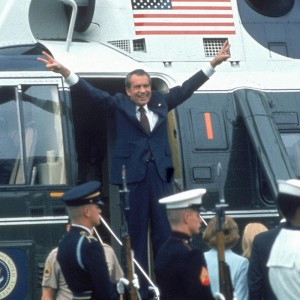
Friday Dec 06, 2019
Impeachment, Part 1: Precedent
Friday Dec 06, 2019
Friday Dec 06, 2019
The ongoing confrontation between the White House and U.S. Congress will likely engross President Donald Trump’s political attention in the months ahead. Given his central role in executing highly delicate negotiations with North Korea and high-stakes face-off over trade with China, the question on many people’s minds is how the impeachment inquiry may affect the U.S. government’s execution of foreign policy.
Two most recent cases of impeachment proceedings against an incumbent president provide insights into what domestic and international observers could expect going forward. Our interns, Soojin Hwang and Rachel Kirsch review precedents set by Richard Nixon and Bill Clinton.
This is the first of two episodes dealing with the impeachment scandal.
Please also find Soojin and Rachel's accompanying blog post here: http://blog.keia.org/2019/10/impeachment-precedent-lessons-nixon-clinton-administrations/
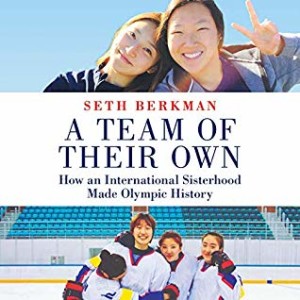
Friday Nov 22, 2019
A Team of Their Own: Seth Berkman
Friday Nov 22, 2019
Friday Nov 22, 2019
While it is frustrating to see North Korean projectiles flying out to sea and Pyongyang’s erratic, unpredictable reactions in negotiations, we cannot forget where things stood in 2017 - the days of Fire and Fury. The exchange of rhetoric between the United States and North Korea appeared to be pushing both sides towards a confrontation. Then a shift happened just as quickly as the escalation - especially after North Korea’s showed interest in jointly participating in the Olympics with South Korea at Pyeongchang in early 2018.
At the heart of this joint participation in the Olympics was the ice hockey team that was formed with athletes representing both North and South Korea - these are events that you might be already familiar with, but a lot was happening at Pyeongchang, both at a geopolitical level and at a human level.
The unified Korea team was more than just a story of North-South reconciliation. The team was pan-Korean with players of Korean descent from Canada and the United States skating side-by-side.
Seth Berkman is the author of the first book on this unique event. His new book "A Team of Their Own: How an International Sisterhood Made Olympic History" is now available wherever good books are sold.
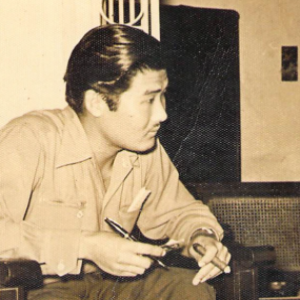
Friday Nov 15, 2019
The Korean Revolutionary in Cuba: Joseph Juhn
Friday Nov 15, 2019
Friday Nov 15, 2019
What does it mean to be Korean?
Is a person's Korean identity contingent on their birth on the Korean Peninsula, their parents’ ethnicity, or their ability to speak Korean?
100 years ago - this was an easier question to answer - a person self-identifying as Korean was likely born on the Korean Peninsula, to two ethnic Korean parents, and spoke Korean.
But the complexity of Korean identity in the 21st century parallels the turbulence of Korea’s history in the 20th century: displacement of caused by Japanese colonialism, Stalin’s deportation of ethnic Koreans to Central Asia, Zainichi Koreans left in limbo after the second world war in Japan, and the migration of Koreans to the Americas in search of new opportunities.
Now there is a vast Korean diaspora around the world - and also a new multi-cultural Korean community in the Korean Peninsula.
Our guest Joseph Juhn spent the last 3 years developing a documentary about one particular group: the Korean Cubans. His project focuses on the life of one Korean-Cuban in particular - Jeronimo Lim who fought alongside Fidel Castro and Che Guevara in the 1958 Revolution. "Jeronimo: An Untold Tale of Koreans in Cuba" premiers in South Korea on November 21, 2019.
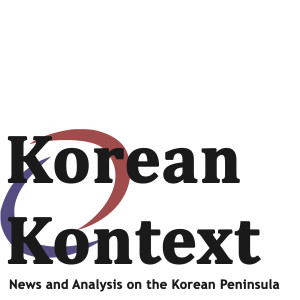
Friday Nov 08, 2019
South Korea as a Liberal Democracy: Darcie Draudt
Friday Nov 08, 2019
Friday Nov 08, 2019
30 years after the fall of the Berlin Wall, people’s aspiration to establish a pluralistic liberal democracy appears to be under scrutiny around the world - anti-immigration policies dominate political discourse in many countries, and strongmen like Viktor Orban in Hungary and Rodrigo Duterte in the Philippines have come to power in nominally democratic countries.
What about South Korea? In 2016 and 2017, the world was witness to millions of Koreans rallying to oust then-president Park Geun-hye who faced allegations of corruption and influence peddling. The so-called Candlelight movement succeeded and a progressive administration under Moon Jae-in assumed the mandate after the impeachment. For a little bit, South Korea appeared to be a global outlier.
However, all is not well - there are simmering tensions when it comes to issues like gender equality and the resettlement of refugees from the Middle East.
Is South Korea perhaps not an outlier after all? More broadly, is South Korea living up to the ideals of liberal democracy?
Our guest today, Johns Hopkins University Ph.D. candidate Darcie Draudt, assesses the health of South Korea’s democracy by examining the evolution of the country’s conception of citizenship and what groups are excluded in the current social contract.
You can find the paper here: http://www.keia.org/sites/default/files/publications/kei_aps_draught_191017.pdf

Friday Nov 01, 2019
Mongolia and the Korean Peninsula: Dr. Alicia Campi
Friday Nov 01, 2019
Friday Nov 01, 2019
Strategically located at the crossroads of Central Asia, China, and Russia, Mongolia has long attracted the attention of regional powers - including the Koreas. How is this traditionally-nomadic, but resource-rich, country establishing its own place in the modern world? What challenges does it now face? What role does the Korean Peninsula play in its foreign policy?
Dr. Alicia Campi joins us on Korean Kontext to provide an in-depth look at Ulaanbataar's worldview and discuss her new book "Mongolia's Foreign Policy: Navigating a Changing World."

Friday Oct 25, 2019
East Meets South: Ahn Choong-yong and Jagganath Panda
Friday Oct 25, 2019
Friday Oct 25, 2019
Though hesitant to officially join the U.S. Indo-Pacific Strategy, South Korea is seeking to promote many of the same values through the Moon administration’s “New Southern Policy.” Central to this agenda is strengthening South Korea’s relations with India. With a strategic partnership and a free trade agreement between the two countries, the foundations of the relationship are already strong. However, both capitals must rise to meet evolving regional security challenges and capitalize on new economic opportunities. Indian Prime Minister Narendra Modi’s “Act East” policy is complementary to Moon’s “New Southern Policy,” but both must work to synchronize the two agendas to upgrade bilateral economic ties and expand security cooperation.
Drs. Ahn Choong-yong and Jagannath Panda join Korean Kontext to discuss what they see on the horizon for South Korea-India economic cooperation.

Friday Jul 19, 2019
Peace Corps Story: Kathleen Stephens
Friday Jul 19, 2019
Friday Jul 19, 2019
The U.S. Peace Corps was active in South Korea between 1961 and 1981. One of the many volunteers who served in South Korea was KEI president and CEO Kathleen Stephens. Her time in Korea was the beginning of a long journey that would eventually lead her to become U.S. ambassador to the country in 2008. In this episode, we look back on her first visit to South Korea.
This interview was conducted by Tyler Lloyd who runs the wonderful podcast series “My Peace Corp Story,” which you can find on iTunes and here: https://mypeacecorpsstory.com/.
The episode is a little longer than the usual Korean Kontext episode, but it is highly informative and worth every minute.
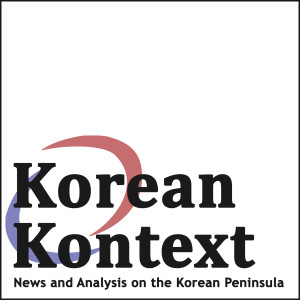
Friday Jul 12, 2019
Korea, Japan, and the Missing Advocate: Kristin Vekasi and Jiwon Nam
Friday Jul 12, 2019
Friday Jul 12, 2019
This month, the world was reminded once again that the relationship between the Republic of Korea and Japan is deeply fractious. Japan has imposed restrictions on the export of chemical components for semiconductor chips – accusing South Korea of failing to provide sufficient guarantees that these materials are not being smuggled into North Korea. However, the accusation comes amid a rift between the two countries over the South Korean court’s ruling that select Japanese companies that had forced Koreans into slave labor during the Second World War had to compensate surviving victims.
This crisis builds on top of existing tensions around other historical legacy issues stemming from Japan’s 35-year colonial occupation of Korea – including a disputed islet, ongoing controversy around compensation for sexual slavery by the Japanese military, and how Japan writes about these historical events in its textbooks.
The U.S. government has encouraged the two countries to make amends for decades with limited success. In this environment, who can be the advocate of reconciliation?
Dr. Kristin Vekasi (@ProfVekasi) and Jiwon Nam believe that the private sector has a critical role to play. The discussion builds on their recent research for the Korea Economic Institute, which you can find here: http://www.keia.org/sites/default/files/publications/kei_aps_namvekasi_190624.pdf
Also, keep your eye open for the upcoming publication of Vekasi and Nam's "Boycotting Japan Boycotting Japan: Explaining Divergence in Chinese and South Korean Economic Backlash" in the December 2019 issue of the Journal of Asian Security and International Affairs.
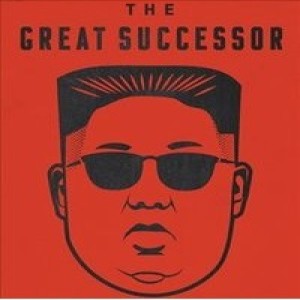
Friday Jul 05, 2019
The Great Successor: Anna Fifield
Friday Jul 05, 2019
Friday Jul 05, 2019
When Kim Jong-il died in 2011, the world held its breath as North Korea entered uncharted waters. No other communist dictatorship in the last century – for that matter no other autocratic state that is not a monarchy – has been able to successfully transfer power to a third generation. Some analysts in Washington and elsewhere raised the possibility of the country collapsing in mere months.
But when that didn’t happen, a new theory arose – would he be the great reformer to lead North Korea to the community of nations? 8 years on, that has not yet happened either.
We still know so little about the North Korean leader – and so much of how we think of Kim Jong-un comes from media portrayals, the parodies, and assumptions amalgamated from our knowledge of other autocrats.
But a new book provides the first comprehensive and readable study of the incumbent North Korean leader. Written by the veteran Washington Post correspondent Anna Fifield, the exhaustively researched new book, titled “The Great Successor: The Divinely Perfect Destiny of Brilliant Comrade Kim Jong Un” provides a more rounded picture of the first North Korean leader to meet the U.S. president.
Anna Fifield (@annafifield) came to KEI and sat down with KEI President Ambassador Kathleen Stephens – in fact, just before the Trump-Kim meeting on June 30, 2019 - for a brief chat.

Friday Jun 28, 2019
Defending Korea, from the Nakdong to the Chosin: Colonel John Stevens
Friday Jun 28, 2019
Friday Jun 28, 2019
On June 25, 1950, North Korea launched a surprise invasion of South Korea and started a war that is still technically ongoing. But it was – as North Korea’s Kim Il-sung presumed when he launched the all-out assault – almost a short war.
The North Korean invasion force was comprised of more than a hundred Soviet tanks and an air force – all armaments that had devastated the German army on the Russian front during WWII. By contrast, the South Korean army had no tanks and an airforce comprised solely of reconnaissance planes.
Predictably, South Korea’s capital Seoul fell in three days. And by August, the North Korean forces had nearly reached the southern port city of Busan – the last pocket of territory held by the Republic of Korea. And had it not been for the intervention of the United Nations forces, South Korea as we know it would not exist.
Our guest today, Colonel John Stevens is a veteran of the Korean War – he was at the Busan Perimeter, also called the Nakdong Line. He joins us today by phone to tell us about his experience in the war.
If you would like more information about the Korean War Memorial Foundation, please visit https://www.kwmf.org/
Please also read about Colonel Stevens' service in the Pacific theater of the Second World War in this article: https://nedforney.com/index.php/2018/09/28/john-stevens-marine-wwii-korean-war/

Friday Jun 21, 2019
How China Sees the Korean Peninsula: Lee Seong-hyon
Friday Jun 21, 2019
Friday Jun 21, 2019
In light of the meeting between China’s leader Xi Jinping and North Korea’s Kim Jong-un this week, we are rebroadcasting an episode from February on Beijing’s foreign policy objectives on the Korean Peninsula.
The visit by Xi Jinping comes on the 70th year of official diplomatic relations between the People’s Republic of China and the Democratic People's Republic of Korea – a date that the Chinese leader made sure to emphasize through an op-ed in North Korea’s official state newspaper (see here: https://bit.ly/2Zzu8oW).
Our guest, Dr. Lee Seong-hyon, is the Director of the Center for Chinese Studies and Department of Unification Strategy at the Sejong Institute. He sat down with KEI’s Juni Kim to provide us with his views on how China approaches the tensions on the Korean Peninsula and its broader ambitions in the region vis-a-vis the United States.

Friday Jun 14, 2019
Friday Jun 14, 2019
The North Korean economy is changing – we know this because of widely reported growth of private markets since the famine of 1990s. But black markets and illicit activities are not the only drivers of this development. The North Korean state is also actively promoting reform through the development of Special Economic Zones.
Dr. Theo Clement sits down with KEI to explain the deep roots of North Korea’s reform efforts and how it influences and is influenced by geopolitics. And most importantly, a police recommendation for how China, South Korea, and the United States should work together to push North Korea towards real reforms.
You can find Dr. Clement’s paper titled “From Failed Economic Interfaces to Political Levers: Assessing China-South Korea Competition and Cooperation Scenarios on North Korean Special Economic Zones” here: http://www.keia.org/sites/default/files/publications/kei_aps_clement_190604_final.pdf

Friday Jun 07, 2019
Explainer: The Political Origins of Korean Baseball
Friday Jun 07, 2019
Friday Jun 07, 2019
In May, The Korean-born Los Angeles Dodgers’ pitcher Ryu Hyun-jin was named The National League Pitcher of the Month.
When you think of Asians and baseball, you might think first of Japan – with famous players like Ichiro Suzuki and Yu Darvish in Major League Baseball. But South Korea also has an illustrious domestic league with competitive players who are breaking ground in the United States. How did baseball get its start in South Korea and where is it going? KEI Senior Director Troy Stangarone and intern Haram Chung explain the political origins of the Korean Baseball Organization and the where it is headed on the international stage.

Friday May 31, 2019
Explainer: The State of Korea's Childcare Industry
Friday May 31, 2019
Friday May 31, 2019
In March, a curious protest took place in Seoul. Private kindergartens were going on strike. Protests by industry groups or workers are not uncommon in South Korea, but something about the protest in the childcare sector struck a raw nerve. What was the industry protesting against? And where are the public kindergartens?
KEI Senior Director Troy Stangarone and intern Steven Lim answer these questions and address how childcare affects demographic trends. Steven Lim's recent Peninsula Blog article is a good accompaniment for this episode, and we highly recommend you check it out: http://blog.keia.org/2019/05/market-options-fail-children/

Friday May 24, 2019
North Korea's Illicit Trade Winds: Hugh Griffith
Friday May 24, 2019
Friday May 24, 2019
North Korea’s ambassador to the United Nations Kim Song demanded that the United States release a North Korean vessel that is currently held by authorities in American Samoa, warning that the detention of the vessel would imperil any future disarmament negotiations.
But wait, why is there a North Korean vessel in American custody in the first place?
To answer that, our guest today is Hugh Griffith, the author of the UN panel of experts report on international sanctions against North Korea.
(You can also find the full report here: https://www.undocs.org/S/2019/171)
In this interview, he tells Korean Kontext about how North Korea has been using ship-to-ship transfers to evade sanctions and how illicit cybercrime activities now bring in as much revenue for Pyongyang as its weapons sales.

Friday May 17, 2019
Why North Korea Won't Budge: Ken Gause
Friday May 17, 2019
Friday May 17, 2019
It’s been nearly one year since the Singapore Summit between President Trump and Kim Jong-un and the two countries are at an impasse. North Korea signals no intention of giving up its existing nuclear arsenal before sanctions relief and the United States has repeatedly underscored that no sanctions would be lifted until Pyongyang makes an irreversible step towards disarmament. But why is this happening? Didn’t North Korea come to the table because international sanctions had become too unbearable? In the face of what the North Korean state media has called the worst drought in 40 years, shouldn’t Kim Jong-un want a compromise?
Or perhaps, we need to reexamine our assumptions and look at the world from behind Kim Jong-un’s desk. How would an autocrat change what had been his country’s single-minded objective for decades?
Our guest, Ken Gause is the foremost expert on North Korea’s leadership. In this episode, he scrutinizes what we think we know about Kim Jong-un.
Ken Gause is CNA's senior foreign leadership analyst and directs the organization's Adversary Analytics Program. He spent the last 20 years developing methodologies for examining leadership dynamics of hard-target, authoritarian regimes. In particular, he is an internationally respected expert on North Korea who has written three books on North Korean leadership, including "North Korean House of Cards: Leadership Dynamics Under Kim Jong-un."
Please also find the video of KEI's public event with Ken Gause here: https://youtu.be/xpup38ee1Ds

Friday May 10, 2019
Going Back to The Source: Jeffrey Robertson
Friday May 10, 2019
Friday May 10, 2019
What if our understanding of North Korea is inadvertently colored by the very resources that we rely on to deepen our knowledge of the country? What does this say about our policies towards North Korea, our coordination with South Korea on North Korea, and the discipline of international relations as a whole?
Professor Jeffrey Robertson tackled these very questions in his latest paper for the Korea Economic Institute, titled "Is Pyongyang Different in Washington and Seoul? English and Korean Language Policy Discourse on North Korea."
In this interview, he addresses the most fundamental question in diplomacy: how do we go about engaging with a country that comes to the table with a different history, perceives events in a different context, and speaks a different language.
You can find his article in this link below: http://www.keia.org/sites/default/files/publications/kei_aps_robertson_190423.pdf
His book “Diplomatic Style and Foreign Policy: A Case Study of South Korea” is available from Routledge. https://smile.amazon.com/dp/1138334154/ref=cm_sw_r_tw_dp_U_x_6.B1Cb6PTWAX5
![[Rebroadcast] Valuing Age and Experience: Yongmin Cho and Quan Nguyen](https://pbcdn1.podbean.com/imglogo/ep-logo/pbblog284530/Korean_Kontext_New_Logo_300x300.jpg)
Friday May 03, 2019
[Rebroadcast] Valuing Age and Experience: Yongmin Cho and Quan Nguyen
Friday May 03, 2019
Friday May 03, 2019
Although it is happening more rapidly in South Korea, an aging society is a common feature in post-industrial societies around the world. With the number of retirees growing and the number of children dwindling, countries are faced with numerous public policy challenges: how to pay for public schools with smaller and smaller enrolments, how to provide a comfortable and fulfilling life for people after retirement, how to best pass on the knowledge accrued by older workers, etc. Carefully measured planning and public policy are required to address these challenges.
We are rebroadcasting an episode from 2017. Jenna Gibson interviewed executives at a company in South Korea called SAY that pairs senior citizen tutors with young students - a market-based solution to some of the challenges that aging societies face.
Please also find in the link below, the article from the New York Times on how a rural town in southwestern South Korea is responding to low school enrollment due to demographic decline: https://www.nytimes.com/2019/04/27/world/asia/south-korea-school-grandmothers.html

Friday Apr 26, 2019
Explainer: Ultrafine Dust Crisis
Friday Apr 26, 2019
Friday Apr 26, 2019
In March, Seoul suffered from the worst air pollution on record. Enough that the South Korean government has officially designated the problem as a social disaster. But what is causing this high level of air pollution – and what exactly is ultrafine dust? And what does the Korean government plan on doing about it? KEI Senior Director Troy Stangarone and Yea Ji Nam are here to answer all these questions.
Yea Ji Nam's recent Peninsula Blog article is a good accompaniment for this episode, and we highly recommend you check it out: http://blog.keia.org/2019/04/fine-dust-impedes-south-koreas-economic-growth/
Please enjoy our very first episode of Korean Kontext Explainer.
![[Rebroadcast] We Built This Bureau: Elise Hu](https://pbcdn1.podbean.com/imglogo/ep-logo/pbblog284530/KoreanKontextNewLogo_300x300.jpg)
Friday Apr 19, 2019
[Rebroadcast] We Built This Bureau: Elise Hu
Friday Apr 19, 2019
Friday Apr 19, 2019
Over the past few years, Korea and Koreans have experienced incredible political, social, and diplomatic shifts.
It is hard keeping up with all these new developments as a Korea Watcher, so the task of reporting the daily news has been doubly challenging.
We are replaying an episode that we broadcasted in May 2018 with then-NPR Seoul correspondent Elise Hu who was present to cover the attack on then-U.S. ambassador to Korea Mark Lippert, the collapse of the Park Geun-hye administration, the transition to President Moon Jae-in, the Winter Olympics, and other key events.
In addition, Elise talks about the challenges that came with opening a news bureau in Korea and generally getting by in Seoul as an American. Our senior director Troy Stangarone led the interview.
Elise Hu is a still with NPR and is based out of Culver City, CA. You can find the Youtube series "Elise Tries" here: https://youtu.be/MJDiQQpGPW0
You can also follow her on twitter @elisewho

Friday Apr 12, 2019
From Maximum Pressure to Maximum Leverage: Daniel Wertz
Friday Apr 12, 2019
Friday Apr 12, 2019
Even before the meeting between President Trump and Kim Jong-un in Hanoi, foreign policy practitioners and observers were talking about the difficulties of sequencing international sanctions relief for North Korea denuclearization and disarmament. Sure enough, North Korea demands more sanctions relief while Washington wants more disarmament. Following the disappointing conclusion to the summit in Hanoi, it feels like we are at an impasse despite the many summit meetings between President Trump, Kim Jong-un, and President Moon Jae-in over the past several months.
What is the right way forward?
Our guest, Daniel Wertz from the National Committee on North Korea, believes that the U.S. approach to negotiations with North Korea has been too inflexible – pointedly, he calls out the fact that the maximum pressure campaign launched against Pyongyang is meaningless if it does not translate to outcomes at the negotiating table.
The discussion builds on his recent Academic Paper Series report for the Korea Economic Institute, which you can find here:
http://www.keia.org/sites/default/files/publications/kei_aps_wertz_190409_final.pdf
Also, if you would like to sign up for KEI's newsletter - Korea View - please sign up in the link here:
https://keia.us11.list-manage.com/subscribe?u=adc207a44e9875eccbf423cd6&id=2b08a7c004
![[Rebroadcast] In Defense of KORUS: Phil Eskeland, Troy Stangarone, and Kyle Ferrier](https://pbcdn1.podbean.com/imglogo/ep-logo/pbblog284530/KoreanKontextSquare_300x300.jpg)
Friday Apr 05, 2019
Friday Apr 05, 2019
Recently released data from the Department of Commerce confirmed that the United States achieved record-level export of services to South Korea in 2018 - $24.5 billion. Combined with the trade in physical goods, the total bilateral trade deficit between the United States and South Korea is at an 8-year low. Now, there are eight more countries with a higher bilateral trade deficit with the United States than Korea, including France, Italy, and Taiwan.
Trade deficit with South Korea was something that President Trump highlighted during his presidential campaign – he blamed this on the Korea-U.S. free trade agreement and in 2017 called for the agreement to be renegotiated. A new agreement was negotiated in 2018 but the newest data suggests that the old agreement may not have been the key driver or a widening trade deficit after all.
At this point in time, we look back and replay an episode from September 2017 where KEI's panel of Phil Eskeland, Troy Stangarone, and Kyle Ferrier analyzed President Trump’s approach to the Korea-US free trade agreement and recommended against abruptly revising the treaty.
You can also read KEI's summary of the 2018 trade data here: http://blog.keia.org/2019/03/overall-u-s-trade-deficit-korea-drops-pre-korus-levels/

Friday Mar 29, 2019
When North Korea Embraces Mobile Technology: Yonho Kim
Friday Mar 29, 2019
Friday Mar 29, 2019
We imagine North Korea as a country that is carrying on not only a conflict left over from the Cold War, but also a decrepit legacy economy from the past. So when recent travelers reported seeing digital billboards at shopping malls in Pyongyang, it caught many international observers by surprise. Moreover, we see everyday people in Pyongyang using cellphones on the street.
We’ve known for a while that USB sticks are used to smuggle South Korean pop culture content into North Korea - so we knew that some North Koreans have computer devices. But what has become more evident in recent years is the extent to which mobile technology has been embraced not just illicitly by the North Korean people, but also formally by the state as part of its economic plan.
KEI's non-resident fellow Yonho Kim sits down with Korean Kontext to discuss the evolution of cell phone adoption in North Korea and how it has changed society, particularly in the economic space where mobile technology has revolutionized the nascent private sector. His recent paper on this topic for the Committee for Human Rights in North Korea is available in the link below:
http://www.hrnkinsider.org/2019/01/north-koreas-mobile-telecommunications.html
KEI also recommends an accompanying paper titled "Information Technology and Social Controls in North Korea" by Scott Thomas Bruce from 2014, which you can find in the link below:
http://keia.org/sites/default/files/publications/2014_aps_scottbruce.pdf
![[Rebroadcast] The Revolution will be Thumb Drived: North Korean Access to Outside Media: Nat Kretchen](https://pbcdn1.podbean.com/imglogo/ep-logo/pbblog284530/Korean_Kontext_New_Logo_300x300.jpg)
Friday Mar 22, 2019
Friday Mar 22, 2019
While North Korea under the Kim regime has tried to maintain tight control of information sources within its borders, the North Korean populace in recent years has found creative ways to access outside media, which includes everything from foreign news broadcasts to the latest South Korean dramas.
Nat Kretchen, Deputy Director at the Open Technology Fund, participated in a panel here at KEI this week and discussed his research on North Korea’s developing information environment. Nat sat down with us afterwards to talk more about how everyday North Koreans access information and how the regime is fighting back against the increase of foreign media in the country.
Note: This episode was originally published on October 20, 2017

Friday Mar 15, 2019
When Cold Warriors Met to Talk About Peace: Mark Tokola
Friday Mar 15, 2019
Friday Mar 15, 2019
We are still digesting the series of summitry that took place in the past few months between North Korea, the United States, and South Korea.
We rightly recognize the historic nature of the president of the United States meeting with the North Korean leader. But more than 50 years ago, there was another meeting between big personalities over the issue of Korea that was just as historic but is all but forgotten today. And while the international environment has changed drastically since, the lessons that the meeting offers to summit goers today is critical.
Our guest today, KEI Vice President Mark Tokola, has just written an essay on this event using declassified state department documents.
You can find Mark Tokola's essay here: http://www.theasanforum.org/9324-2/
![[Rebroadcast] Achieving Peace through Sanctions: Stephan Haggard](https://pbcdn1.podbean.com/imglogo/ep-logo/pbblog284530/KoreanKontextNewLogo_300x300.jpg)
Friday Mar 08, 2019
[Rebroadcast] Achieving Peace through Sanctions: Stephan Haggard
Friday Mar 08, 2019
Friday Mar 08, 2019
The second summit between President Donald Trump and North Korean leader Kim Jong-un on February 27 and 28 ended without an agreement. The key difference in the two leaders’ negotiating positions appears to have been over sanctions relief. If negotiations continue, further discussions on the sequence of sanctions relief are sure to arise.
At this moment, we wanted to rebroadcast an episode from December 2016, just as the United Nations was escalating sanctions against North Korea in response to their fourth nuclear test in January of that year. KEI’s Troy Stangarone sat down with one of the foremost experts on North Korean sanctions, Dr. Stephan Haggard, distinguished professor of political science and director of the Korea-Pacific Program at the school of global policy and strategy at the University of California San Diego. Their discussion explores the strengths and limitations of the sanctions regime, alongside what the international body hopes to achieve as a result.
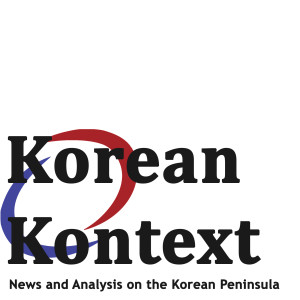
Friday Mar 01, 2019
We Go Together: Ambassador Kathleen Stephens and General Skip Sharp
Friday Mar 01, 2019
Friday Mar 01, 2019
As the complex negotiations between North Korea, United States, and South Korea continue, it is worthwhile to review what the current U.S. presence on the Korean Peninsula looks like. For this, we are airing a special episode of the wonderful podcast the General and the Ambassador from the American Academy of Diplomacy. The episode features KEI President and former U.S. ambassador to South Korea Kathleen Stephens (2008-2011) and General Skip Sharp who served as the commander of the ROK-US combined forces during the same time.
They will discuss the evolution and trajectory of the U.S.-Korea relationship and specifically, reflect on the twin crises of 2010 – when the North Korean military scuttled a South Korea naval vessel in March and then shelled an island later that year.
You can find more episodes from the General and the Ambassador series at the American Academy of Diplomacy website:https://www.generalambassadorpodcast.org

Friday Feb 22, 2019
Friday Feb 22, 2019
Despite all the attention around the upcoming second summit between Donald Trump and Kim Jong-un, we in the United States still know very little about North Korea, its people, and their aspirations. There is, of course, no public opinion polling. Single-party rule means that there is no platform where the Korean Workers’ Party carries out an in-depth discussion on the direction of the country.
There is one exception: literature. As a result, state-sanctioned short stories and novels are the windows through which the outside world can begin to understand what North Korea’s leaders envision as an ideal society.
Of particular interest, what of North Korea’s promise to deliver a strong and prosperous country by 2012? How are they messaging the party’s accomplishments? Has it arrived - if it has, how does North Korea explain the economic challenges that people face? if it has not yet arrived - why should the people continue to have confidence in the Party?
Our guest today, Dr. Meredith Shaw, a researcher of North Korean literature from the University of Tokyo, will address these questions and more.
You can find her presentation at KEI here: https://youtu.be/uwUqeQMdwHM
You can also find her blog on North Korean literature here: dprklit.blogspot.com

Friday Feb 15, 2019
China’s Dream and The Korean Peninsula: Dr. Lee Seong-hyon
Friday Feb 15, 2019
Friday Feb 15, 2019
As we approach the second US-DPRK Summit, the media in the United States is so focused on the dynamics between President Trump and Kim Jong-un that the interests and motivations of another key player has gone under-discussed: China.
It was Kim’s meeting with Xi Jinping in Beijing earlier this year that alerted the world to Pyongyang’s intentions to advance the second Summit meeting with the United States. China is also North Korea’s most prominent economic partner.
And yet we do not give enough thought to how China may be approaching the situation on the Korean Peninsula.
Our guest today, Dr. Lee Seong-hyon, is the Director of the Center for Chinese Studies and Department of Unification Strategy at the Sejong Institute. He sat down with KEI’s Juni Kim to provide us with his views on how China approaches the tensions on the Korean Peninsula and its broader ambitions in the region vis-a-vis the United States.
He also led a seminar discussion on this very topic at the Korea Economic Institute in October 2018 - which you can see in full here: https://www.youtube.com/watch?v=8qcVf-A8FzE

Friday Feb 08, 2019
Neighbors not by Geography, but by a Shared Vision: Park Jae-kyung
Friday Feb 08, 2019
Friday Feb 08, 2019
When people talk about South Korea’s foreign policy, they are more often than not focused on how Seoul engages with its immediate neighbors on denuclearization. However, as a global trading power, South Korea’s foreign policy interests extends beyond the Peninsula.
In particular, President Moon Jae-in has been focused on building a more robust relationship with nations in Southeast Asia. Dubbed “The New Southern Policy,” South Korea is committed to working with ASEAN nations to build a more prosperous future. But will it be able to compete against China and Japan with their massive investments through One Belt One Road and the Asian Development Bank? And how will Korea navigate the geographically, politically, and economically fragmented community? What does South Korea bring to the table, and what does the region offer to South Korea?
Our guest today, Senior Coordinator of the Presidential Committee on New Southern Policy Park Jae-kyung shares with Korean Kontext his outlook on the region and where he sees Korea's advantages.
Also watch the panel discussion between Mr. Park and figures from U.S.-ASEAN Business Council, U.S. Department of State, Asan Institute for Policy Studies, and others discuss U.S.-ROK cooperation in Southeast Asia and India here: https://youtu.be/rmXWkn8fEEE

Friday Feb 01, 2019
Trade Wars Strike Back: Dr. June Park
Friday Feb 01, 2019
Friday Feb 01, 2019
Amid the maelstrom of the drama around diplomacy with North Korean, it’s easy to forget that South Korea and the United States are engaged in a fairly serious trade dispute over tariffs that Washington imposed on imported solar panels and washing machines.
This has caused significant tensions at a time when these long-time security allies need to be in lock step to advance the denuclearization of North Korea.
Our guest today, Dr. June Park, is a political economist who has been carefully monitoring trade dispute for years. She is currently an adjunct professor of Global Affairs at the George Mason University Korea and a Non-resident James A. Kelly Korea Fellow at the Pacific Forum.
She is the author of a KEI report on the effects of the ongoing trade war on Korea’s solar panel industry, which you can find in the link below:
http://www.keia.org/sites/default/files/publications/kei_aps_june_park_190102_final.pdf
Dr. Park speaks with KEI's Junil Kim on what factors are driving the current trade frictions and what could be done to alleviate these tensions.

Friday Jan 25, 2019
What the Korean Wave Brought to the American Table: Michael Hong
Friday Jan 25, 2019
Friday Jan 25, 2019
Long before BTS and Psy made their debut, a handful of entrepreneurs were laying the foundations for what would become the Korean Wave in the United States. With Korean pop culture now a global sensation, Korean Kontext sits down with one of these pioneers - Michael Hong, CEO and Co-founder of the global content distributor Digital Media Rights.
In our discussion, Michael touches on the cultural and technological changes that accelerated the spread of Korean entertainment content. And also what the Korean Wave meant to him personally as a Korean-American from Queens, NY.
Michael Hong is this year's honoree at KEI's Korean-American Day. If you have not yet checked out Korean Kontext's interviews with our other honorees - Susan Kang of Soompi and Charlotte and Dave Cho of Sokoglam - we highly recommend you go back and listen.

Friday Jan 18, 2019
Danish Furniture, Korean Skincare: Charlotte and Dave Cho
Friday Jan 18, 2019
Friday Jan 18, 2019
Korea today leads the world in autos and electronics, but newly emerging manufacturers and protectionism threaten the country's position as a leading exporter. In search of innovative industries that will allow Korea to punch above its weight in the global market, cosmetics are seen as a possible contender. Enter Sokoglam: an online market place curating K-beauty products in the United States. Their founders, Charlotte and Dave Cho, sit down with Korean Kontext to discuss how they built the business and where they hope to take the industry in the future.
This is the second of three episodes with honorees from KEI's Korean-American Day celebration. If you haven't yet, we highly recommend the first episode with Susan Kang, the founder of Soompi.

Friday Jan 11, 2019
We Built This K-pop Community: Susan Kang
Friday Jan 11, 2019
Friday Jan 11, 2019
K-pop had an explosive year in 2018, but it didn't arise from a vacuum. Since 1998, one web community - Soompi - has been sharing the latest information about Korea's thriving pop culture scene and steadily building a community. It would be no exaggeration to claim that a lot of South Korea's soft power is built on this community.
Korean Kontext sits down with Soompi's founder, Susan Kang - who is also the 2019 Korean-American Day honoree for her contributions to advancing awareness of Korean culture in the United States. But as the interview with her reveals, the community she built was more than a place for K-pop fans to gather - it was a safe place, a home away from home, and a place of understanding. And perhaps that's the biggest takeaway from the Korean Wave: that we are not all that different from one another.

Friday Dec 21, 2018
2018 in Review from the Korea Economic Institute
Friday Dec 21, 2018
Friday Dec 21, 2018
2018 has been an incredibly eventful year for both the Koreas and the U.S.-Korea relationship: from North Korea’s participation in the Winter Olympics at the start of the year to the Trump-Kim Summit in June, things moved at a dizzying speed.
But it was more than just the summitry - there were developments on social and economic fronts. South Korea’s foreign policy looked to Southeast Asia, women rallied against harassment, and people debated the country’s energy mix. This and much more on this final episode of the year.

Friday Dec 14, 2018
Children are our future, our present: Dafna Zur
Friday Dec 14, 2018
Friday Dec 14, 2018
Interest in the Korean peninsula is generally very narrow in the United States - it tends to be focused on North Korea and security issues, particularly the country's ballistic and nuclear weapons developments. Given the security challenges, this is not necessarily a bad thing, but how do we begin to engage with a society that we don’t quite understand? What are the aspirations of the North Korean people? What is their world view?
Making the task particularly difficult, North Korea is a notoriously isolated country - doing field studies in the country is not an option. But there is one discipline that presents a window into the collective imagination and perceptions of the North Korean society: literature.
Dr. Dafna Zur joins Korean Kontext to address how literature can be used to better understand North Korea - and also tells us about the complex history of children’s literature on the Korean Peninsula.
Also check out her lecture at the Library of Congress on science fiction in North Korea: https://youtu.be/mH8RPQWd-ho
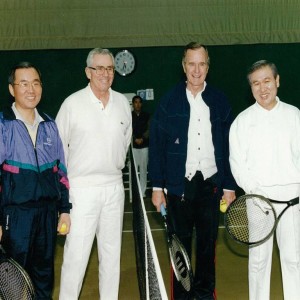
Friday Dec 07, 2018
Friday Dec 07, 2018
Last Friday, on November 30, 2018, President George H.W. Bush passed away. In the days that followed, there were many discussions in the foreign policy community about the late president's handling of the many dramatic events during his tenure: the collapse of the Soviet Union, unification of Germany, democratization of Eastern Europe, the Gulf War, etc. Here, the Korean Peninsula often gets sidelined - however, President Bush senior should be remembered for strengthening not only the U.S.-Korea relationship but also extending critical support to the nascent democratic institution in South Korea. Moreover, it was during the Bush administration that the two Koreas joined the United Nations and began discussing the denuclearization of the Korean Peninsula. To talk about these developments in greater detail, KEI sat down with Donald Gregg who served as ambassador to South Korea between 1989 and 1993.
A good accompanying piece for this episode is the article on President H.W. Bush's legacy in Korea by our president, Ambassador Kathleen Stephens, on KEI's Peninsula Blog. Find the post here

Friday Nov 30, 2018
How Koreans Define Koreaness: Christopher Green and Steven Denney
Friday Nov 30, 2018
Friday Nov 30, 2018
What does a unified Korea look like? Beyond the question of whether the government of this new country will be a unitary or federal one, how will the people - separated not just by time, but also increasingly language and worldview - interact with one another? This goes to the heart of the research by Christopher Green (PhD candidate, Leiden University) and Steven Denney (PhD candidate, University of Toronto) who are examining how the broader Korean perspective on what defines a Korean nation is evolving over time.
You can find their research paper for KEI's Academic Paper Series here
